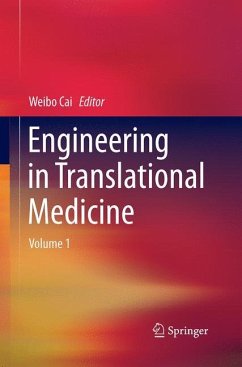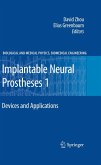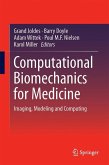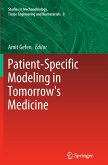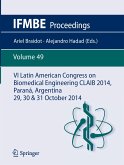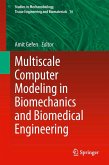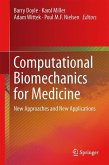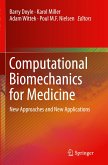This book covers a broad area of engineering research in translational medicine. Leaders in academic institutions around the world contributed focused chapters on a broad array of topics such as: cell and tissue engineering (6 chapters), genetic and protein engineering (10 chapters), nanoengineering (10 chapters), biomedical instrumentation (4 chapters), and theranostics and other novel approaches (4 chapters). Each chapter is a stand-alone review that summarizes the state-of-the-art of the specific research area.
Engineering in Translational Medicine gives readers a comprehensive and in-depth overview of a broad array of related research areas, making this an excellent reference book for scientists and students both new to engineering/translational medicine and currently working in this area.
The ability for engineering approaches to change biomedical research are increasing and having significant impact. Development of basic assays and their numerous applications are allowing for many new discoveries and should eventually impact human health. This book brings together many diverse yet related topics to give the reader a solid overview of many important areas that are not found together elsewhere. Dr. Weibo Cai has taken great care to select key research leaders of many sub-disciplines who have put together very detailed chapters that are easy to read yet highly rich in content.
_______________
This book brings together many diverse yet related topics to give the reader a solid overview of many important areas that are not found together elsewhere. Dr. Weibo Cai has taken great care to select key research leaders of many sub-disciplines who have put together very detailed chapters that are easy to read yet highly rich in content. It is very exciting to see such a great set of chapters all together to allow one to have a key understanding of many different areas including cell, gene, protein, and nano engineering aswell as the emerging field of theranostics. I am sure the readers will find this collection of important chapters helpful in their own research and understanding of how engineering has and will continue to play a critical role in biomedical research and clinical translation.
Sanjiv Sam Gambhir M.D., Ph.D.
Stanford University, USA
Engineering in Translational Medicine is a landmark book bridging the fields of engineering and medicine with a focus on translational technologies and methods. In a single, well-coordinated volume, this book brings together contributions from a strong and international scientific cast, broadly covering the topics. The book captures the tremendous opportunities made possible by recent developments in bioengineering, and highlights the potential impact of these advances across a broad spectrum of pressing health care needs. The book can equally serve as a text for graduate level courses, a reference source, a book to be dipped into for pleasure by those working within the field, or a cover-to-cover read for those wanting a comprehensive, yet readable introduction to the current state of engineering advances and how they are impacting translational medicine.
Simon R. Cherry, Ph.D.
University of California, Davis, USA
Hinweis: Dieser Artikel kann nur an eine deutsche Lieferadresse ausgeliefert werden.
Engineering in Translational Medicine gives readers a comprehensive and in-depth overview of a broad array of related research areas, making this an excellent reference book for scientists and students both new to engineering/translational medicine and currently working in this area.
The ability for engineering approaches to change biomedical research are increasing and having significant impact. Development of basic assays and their numerous applications are allowing for many new discoveries and should eventually impact human health. This book brings together many diverse yet related topics to give the reader a solid overview of many important areas that are not found together elsewhere. Dr. Weibo Cai has taken great care to select key research leaders of many sub-disciplines who have put together very detailed chapters that are easy to read yet highly rich in content.
_______________
This book brings together many diverse yet related topics to give the reader a solid overview of many important areas that are not found together elsewhere. Dr. Weibo Cai has taken great care to select key research leaders of many sub-disciplines who have put together very detailed chapters that are easy to read yet highly rich in content. It is very exciting to see such a great set of chapters all together to allow one to have a key understanding of many different areas including cell, gene, protein, and nano engineering aswell as the emerging field of theranostics. I am sure the readers will find this collection of important chapters helpful in their own research and understanding of how engineering has and will continue to play a critical role in biomedical research and clinical translation.
Sanjiv Sam Gambhir M.D., Ph.D.
Stanford University, USA
Engineering in Translational Medicine is a landmark book bridging the fields of engineering and medicine with a focus on translational technologies and methods. In a single, well-coordinated volume, this book brings together contributions from a strong and international scientific cast, broadly covering the topics. The book captures the tremendous opportunities made possible by recent developments in bioengineering, and highlights the potential impact of these advances across a broad spectrum of pressing health care needs. The book can equally serve as a text for graduate level courses, a reference source, a book to be dipped into for pleasure by those working within the field, or a cover-to-cover read for those wanting a comprehensive, yet readable introduction to the current state of engineering advances and how they are impacting translational medicine.
Simon R. Cherry, Ph.D.
University of California, Davis, USA
Hinweis: Dieser Artikel kann nur an eine deutsche Lieferadresse ausgeliefert werden.
From the book reviews:
"This book may be considered an invaluable resource at first for scientists who want to have an updated overview of the whole scenario or a reference book to easily find information on the most advanced procedures. Furthermore, this publication may be very useful either for the training of students and residents, who may learn the fundamentals of translational medicine, or for the continuing education of clinicians already working in a medical practice." (Luigi Mansi, European Journal of Nuclear Medicine and Molecular Medicine, Vol. 41, 2014)
"This book may be considered an invaluable resource at first for scientists who want to have an updated overview of the whole scenario or a reference book to easily find information on the most advanced procedures. Furthermore, this publication may be very useful either for the training of students and residents, who may learn the fundamentals of translational medicine, or for the continuing education of clinicians already working in a medical practice." (Luigi Mansi, European Journal of Nuclear Medicine and Molecular Medicine, Vol. 41, 2014)

